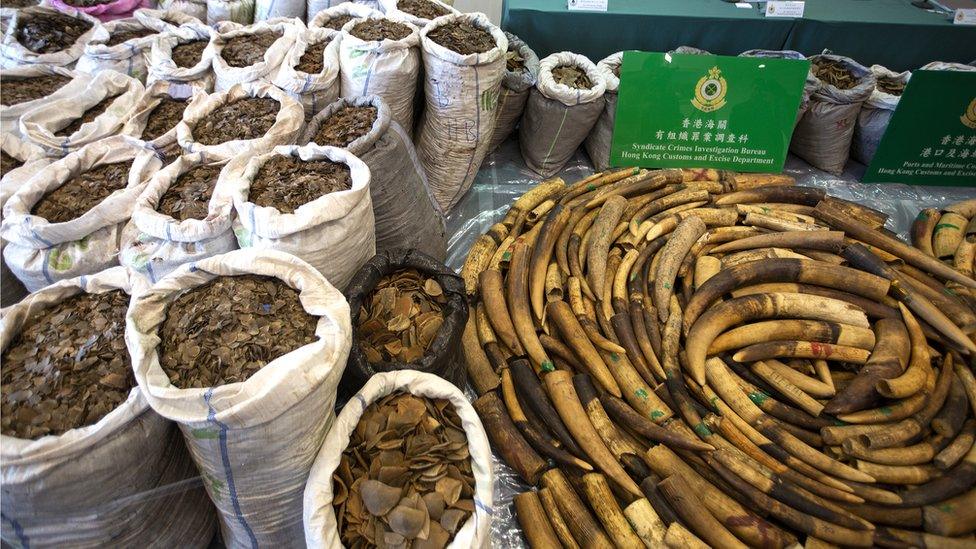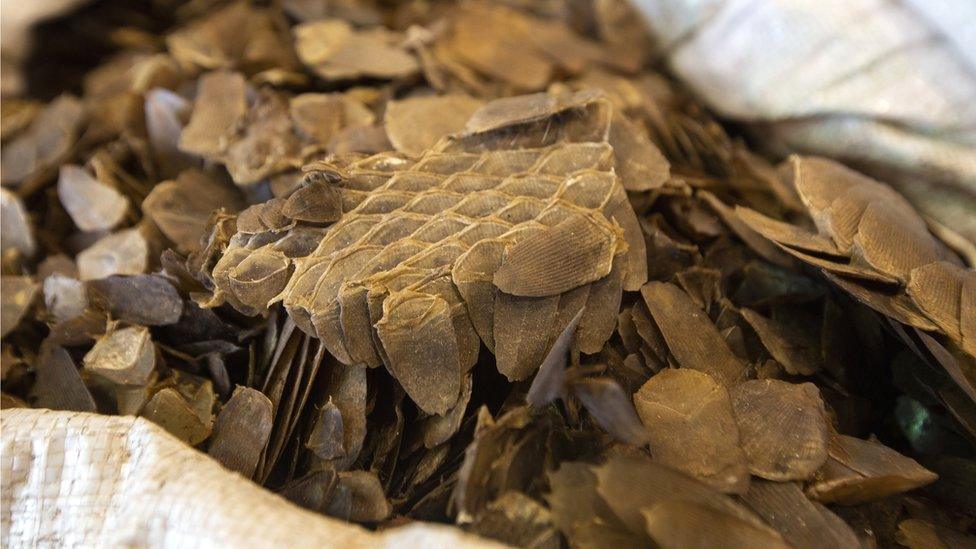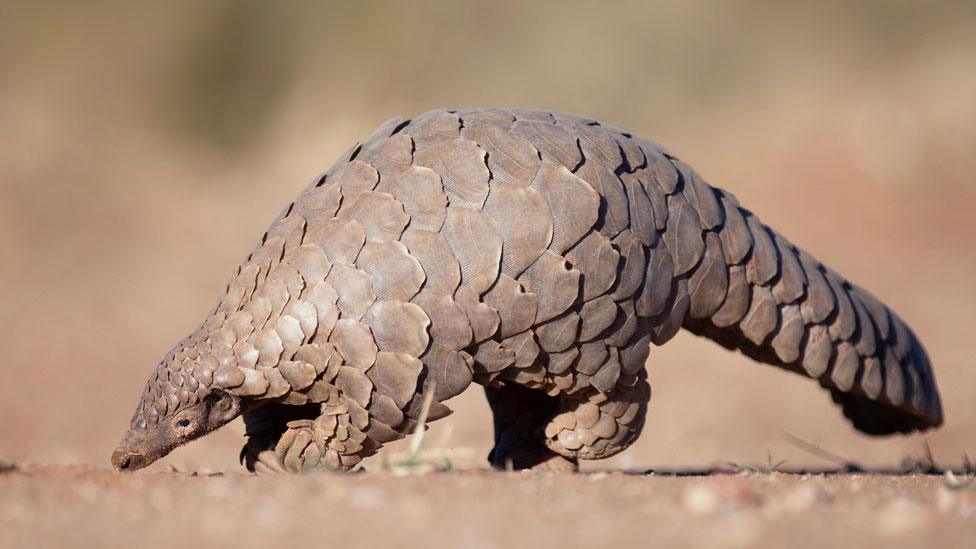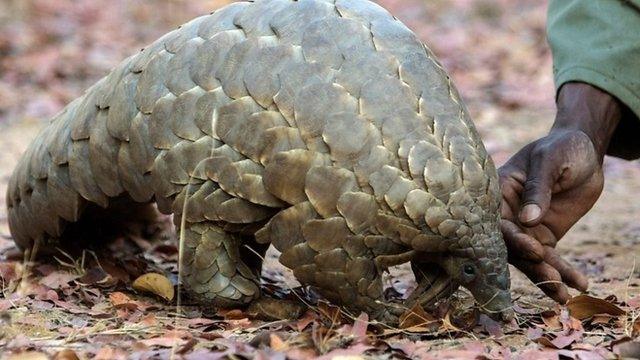Pangolins: Hong Kong finds 'record' haul of scales in shipping container
- Published
Pangolin: The most trafficked mammal in the world
A record eight tonnes of pangolin scales and more than 1,000 elephant tusks have been seized from a shipping container in Hong Kong, officials say.
The container, from Nigeria and said to be carrying frozen beef, was searched after a tip-off.
The illegal cargo has an estimated value of about $8m (£6m). Two arrests were made, officials say.
The scales of the pangolin, an endangered anteater, are said to have medicinal value in parts of Asia.

Customs officers in Hong Kong said the shipment contained 8,300kg of pangolin scales (left)
They have previously been smuggled into countries from Africa in huge quantities, with the pangolin thought to be the world's most trafficked mammal.
On Friday, Hong Kong customs officers said they had seized some 8,300kg of pangolin scales and 2,100kg of ivory tusks hidden inside the container, AFP news agency reports.
They added that the shipment, which was bound for Vietnam, was "a record quantity for a seizure of pangolin scales".

Pangolins are sought after for the unproven medicinal properties of their scales
A man and a woman from a trading company were arrested in Hong Kong, the customs department said.
It is difficult to determine how many pangolins would have been killed to make 8,300kg of scales as there are three species of the anteater ranging in weight from about 2kg to 35kg, Dr Helen O'Neill from the Zoological Society of London told the BBC.
Why are pangolins trafficked?
These unusual-looking creatures are the world's most scaly animal. All eight species are endangered because they are hunted for their scales and meat - and are now protected under international law.
The scales, which are made from nothing more than keratin, the same material that makes up human fingernails and hair, are sought after for their unproven medicinal properties.
Some 100,000 pangolins are snatched every year from the wild and sent to Vietnam and China.
This has led to their numbers falling drastically.
- Published10 October 2018

- Published2 February 2017
